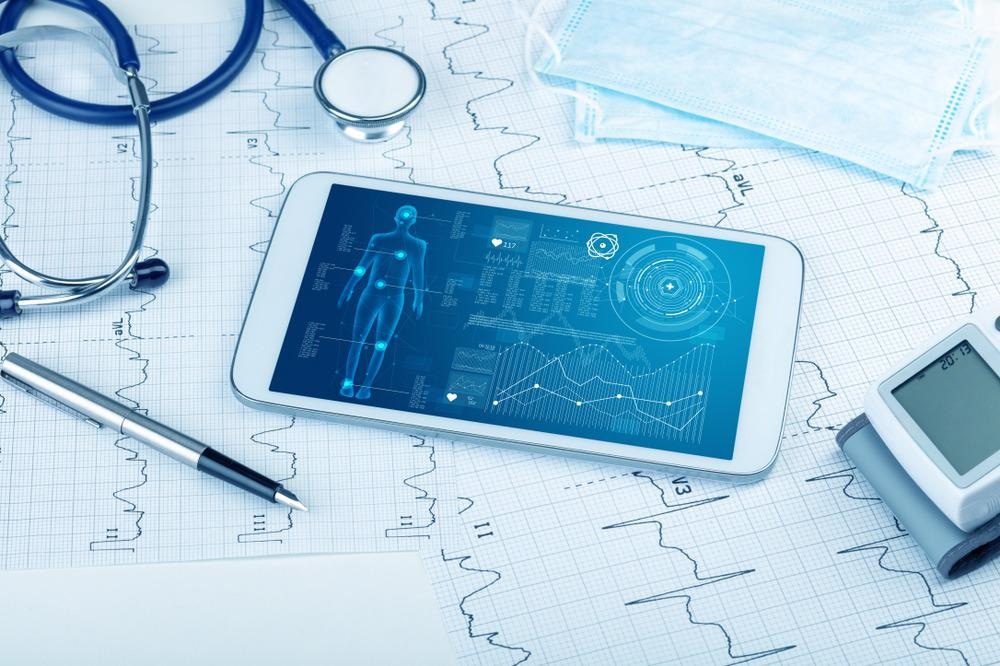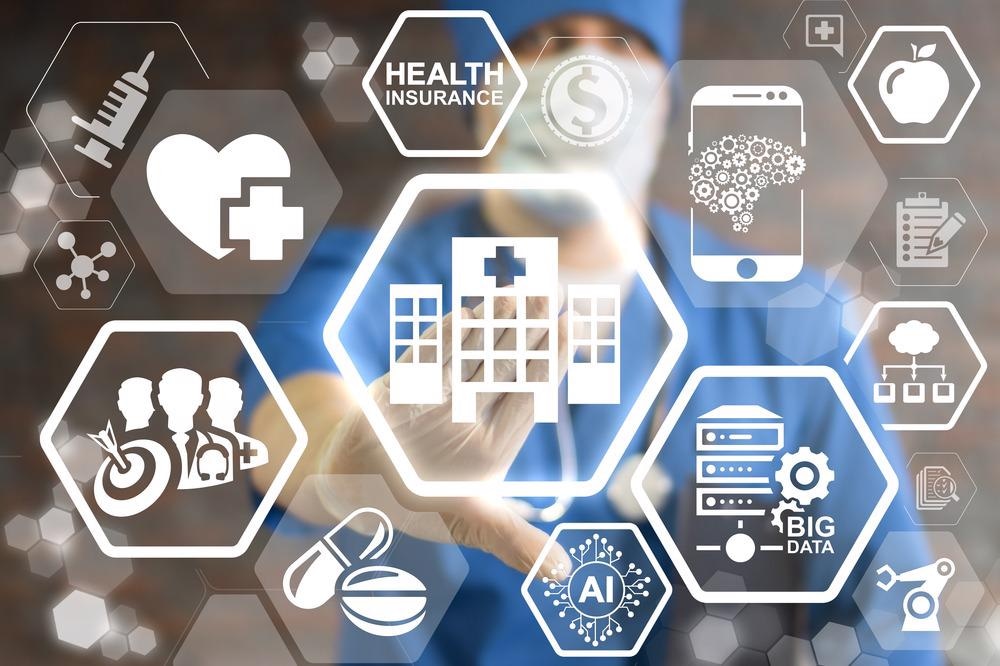Future of Smart Health Systems
Advances in technology look set to change the face of global health care as we know it. The idea of smart healthcare uses a new generation of information technologies including artificial intelligence and big data.

Smart healthcare. Image Credit: ra2 studio/Shutterstock.com
The future of healthcare looks set to be transformed in a positive way so that is more streamlined, personal and efficient.
A new generation of smart health technologies
The concept of smart healthcare originated from that of the “Smart Planet” first proposed in 2009 by IBM (Armonk, NY, USA). Smart Planet “is an intelligent infrastructure that uses sensors to perceive information, transmits information through the internet of things (IoT), and processes the information using supercomputers and cloud computing” (Tian, 2019).
Also, according to Tian (2019) smart healthcare is ‘not just a simple technological advancement, but is an all-round, multi-level change.’ The transformation will move us away from disease-centred care and toward a more patient-centered approach. There will also be a shift away from a focus on treatment to a focus on preventative care.
Smart healthcare involves human and non-human participants ––doctors, patients, hospitals and research institutes. At its core, it comprises the following new technologies together with modern biotechnology: Artificial Intelligence (AI), the Internet of Things (IoT), the Medical Internet of Things (MIoT), edge computing, cloud computing, big data and next-generation wireless communication technology. Here we will take a brief look at AI and the IoT in turn:
Artificial Intelligence (AI)
Artificial intelligence and related technologies are now beginning to be applied to healthcare. AI has already been demonstrated to perform just as well if not better than humans do at key tasks in healthcare. AI is just not one technology but rather a collection of technologies:
Machine learning ––neural networks and deep learning
- Imitation of intelligent human behavior; computer algorithms improve through experience
- This is the primary variety of AI required for precision medicine
- A neural network is a complex form of machine learning used to decipher whether a patient will develop a particular disease based on the weighing inputs, outputs and variables or features that associate the two
- Deep learning meanwhile is a neural network with many levels of variables for predicting outcomes
- One application of deep learning is the detection of clinically relevant features in radiology images whereby algorithms are already outperforming radiologists in spotting incidences of cancer
Physical robots
- Physical robots have been deployed in industry and are thus well established
- Improvements in AI mean they are becoming more ‘intelligent’
- They perform tasks such as lifting and welding
- They deliver supplies in the healthcare setting
- Surgical robots can perform tasks such as creating incisions and stitching wounds and performing surgical procedures in gynecologic, prostate and head and neck surgery
Natural language processing (NLP)
- NLP concerns making sense of human language and comprises applications such as speech recognition, text analysis and goals
- The two basic approaches to NLP are statistical and semantic
- Statistical NLP is based on machine learning ––and deep learning (see above) techniques especially have increased accuracy of recognition
- In the healthcare setting, NLP can be used in the creation classification and documentation of clinical information
- NLP systems can analyze clinical notes and reports and provide transcription

Smart healthcare. Image Credit: Panchenko Vladimir/Shutterstock.com
The Internet of Things (IoT)
The IoT is a ‘system of wireless, interrelated, and connected digital devices that can collect, send, and store data over a network without requiring human-to-human or human-to-computer interaction’ (Kelly, 2020). To be applicable to health care, IoT can be any device that can collect health-related data from individuals such as computing devices, mobile phones, smart bands and wearables, digital medications, implantable surgical devices, and any other kind of portable device that can measure health care data and is connectable to the internet.
More research is needed to determine the acceptability of using the IoT to assess the levels of digital literacy for both clinicians and consumers. Even so, it is anticipated the IoT will streamline healthcare delivery from diagnosis through treatment to the monitoring of patients inside and outside the hospital setting.
Smart healthcare in the future
What will the futuristic digital hospital look like? According to the Deloitte Center for Health Solutions, that future is not a not-so-distant prospect. In as little as a decade, digital hospitals are anticipated to have altered healthcare in a profound way.
Technology will come to underlie many aspects of hospital care though there will still be a vital place for human input: the need for hands-on human care and empathy will remain an essential and irreplaceable component of care.
References
- Alsheri, F. et al. (2020) A Comprehensive Survey of the Internet of Things (IoT) and AI-Based Smart Healthcare. Doi: 10.1109/ACCESS.2020.3047960.
- Davenport, T. et al. (2019) The potential for artificial intelligence in healthcare. Future Healthc J. Doi: 10.7861/futurehosp.6-2-94.
- Kelly, J. et al. (2020) The Internet of Things: Impact and Implications for Health Care Delivery. J Med Internet Res. Doi: 10.2196/20135.
- Thomas, S. (n. d.) The digital hospital of the future. Deloitte. Online: https://www2.deloitte.com/global/en/pages/life-sciences-and-healthcare/articles/global-digital-hospital-of-the-future.html.
- Tian, S. et al. (2019) Smart healthcare: making medical care more intelligent. Global Health Journal. Doi.org/10.1016/j.glohj.2019.07.001.
Further Reading
- All Healthcare Content
- Healthcare Systems Around the World
- What is the Role of Regulatory Bodies in Healthcare?
- How is the ‘omics’ Revolution Changing Healthcare?
- Primary Healthcare Providers
Last Updated: Apr 27, 2022

Written by
Dr. Nicola Williams
I’m currently working as a post-doctoral fellow in the History of Science at the Leeds and Humanities Research Institute (LAHRI), at the University of Leeds. Broadly speaking my research area falls within the remit of the history of biology and history of technology in the twentieth century. More specifically I have specialist knowledge in the areas of electron microscopy and cellular and molecular biology, women in science and visual culture.
Source: Read Full Article
